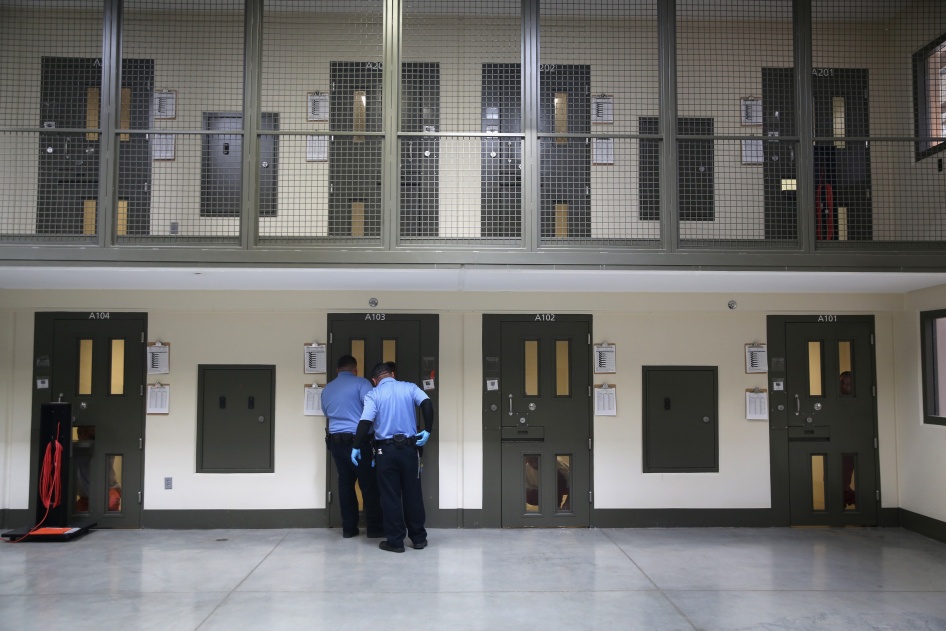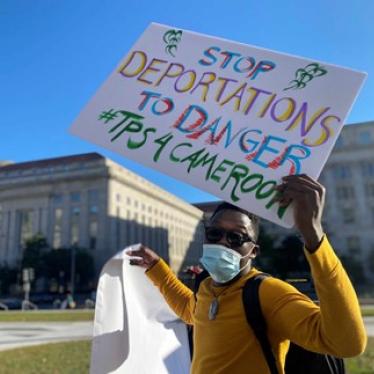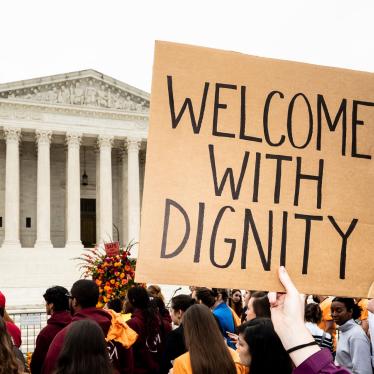Earlier this month, people being detained at California Immigration and Customs Enforcement (ICE) facilities began a labor and hunger strike to protest their conditions, including against the use of solitary confinement. Recent research documented the deep physical and psychological toll wrought by the use of solitary confinement in United States immigration detention centers.
Across the US, carceral facilities lock up over 122,000 people daily in solitary confinement for 22 or more hours a day. In the last five years, ICE alone has locked people in solitary confinement over 14,000 times, often for months on end.
Human Rights Watch has condemned solitary confinement practices in the US, including in immigration detention centers.
From 2018 to 2023, the average period for which ICE detention facilities imposed solitary confinement was 27 days. In hundreds of cases, solitary confinement lasted at least 90 days, and in 42 cases lasted over a year. This violates international standards barring prolonged or indefinite solitary confinement, which amounts to prohibited torture or cruel, inhuman or degrading treatment or punishment.
UN Special Rapporteur on Torture Juan Méndez has specifically concluded that solitary confinement beyond 15 days constitutes a “form of torture.” The use of solitary confinement for any duration on children and people with psychosocial disabilities also meets these criteria.
For people in US immigration detention, solitary confinement often compounds the effects of previous traumatic experiences. Segregation can cause people’s mental health to deteriorate, and they are unlikely to receive appropriate or timely mental health care. Solitary confinement is linked to anxiety, depression, and psychosis. Even a few days in solitary significantly heightens the risk of death by suicide. A recent report documented dozens of preventable deaths in ICE detention facilities, including many individuals who died by suicide after spending time in solitary confinement.
ICE’s use of solitary confinement disproportionally targets people with psychosocial disabilities and African and Caribbean immigrants. Black immigrants are overrepresented by a factor of 6.8 in solitary confinement cases.
Immigration detention itself should only be used as a tool of last resort, and the UN Working Group on Arbitrary Detention has called for it to be gradually abolished. Imposing solitary confinement is an extreme deprivation of rights that is disproportionate to any legitimate state interest in the immigration detention context.
The US should end solitary confinement in immigration detention and work toward ending immigration detention as a whole.







